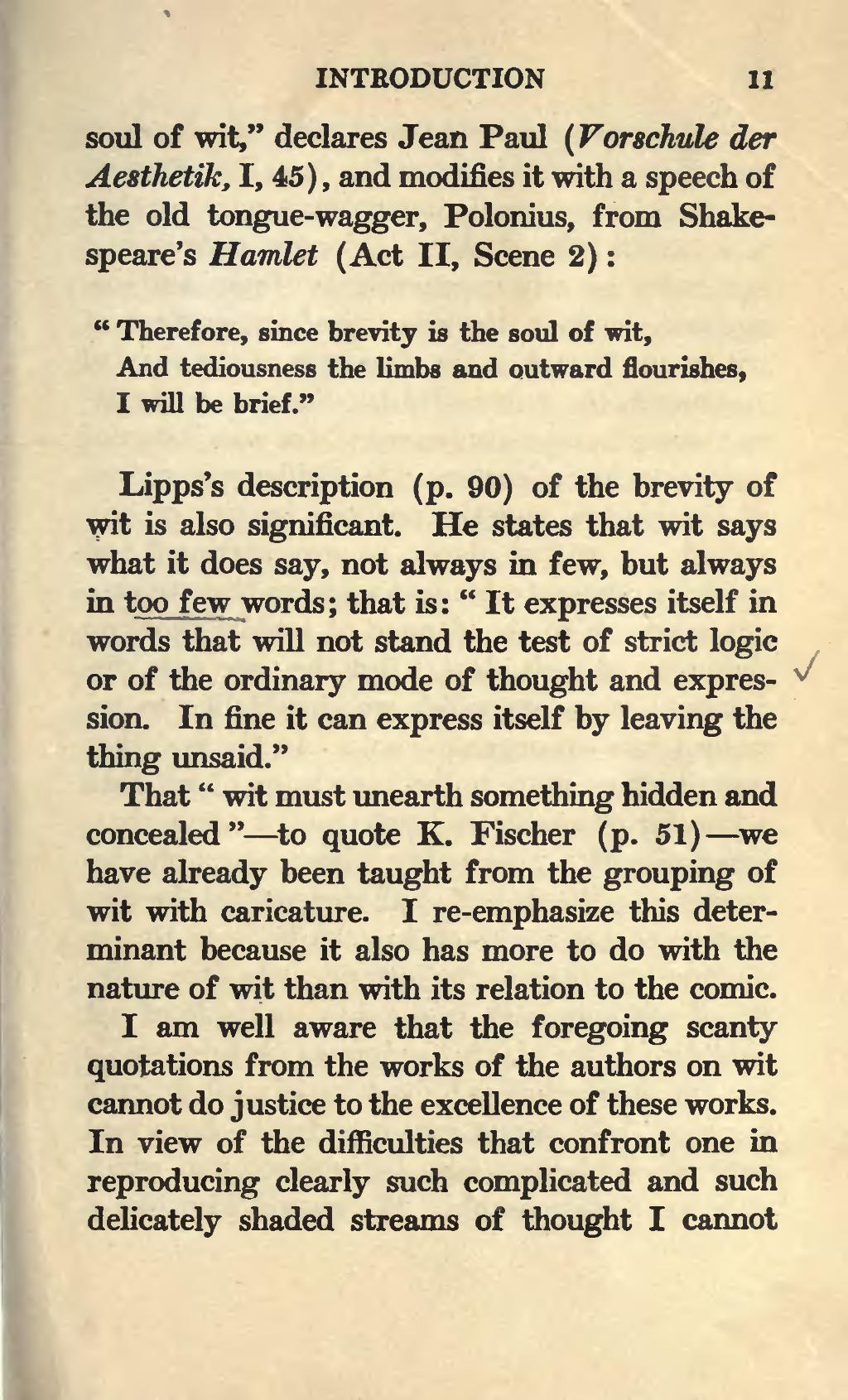soul of wit,” declares Jean Paul (Vorschule der Aesthetik, I, 45), and modifies it with a speech of the old tongue-wagger, Polonius, from Shakespeare’s Hamlet (Act II, Scene 2):
- “Therefore, since brevity is the soul of wit,
- And tediousness the limbs and outward flourishes,
- I will be brief.”
Lipps’s description (p. 90) of the brevity of wit is also significant. He states that wit says what it does say, not always in few, but always in too few words; that is: “It expresses itself in words that will not stand the test of strict logic or of the ordinary mode of thought and expression. In fine it can express itself by leaving the thing unsaid.”
That “wit must unearth something hidden and concealed”—to quote K. Fischer (p. 51)—we have already been taught from the grouping of wit with caricature. I re-emphasize this determinant because it also has more to do with the nature of wit than with its relation to the comic.
I am well aware that the foregoing scanty quotations from the works of the authors on wit cannot do justice to the excellence of these works. In view of the difficulties that confront one in reproducing clearly such complicated and such delicately shaded streams of thought I cannot
